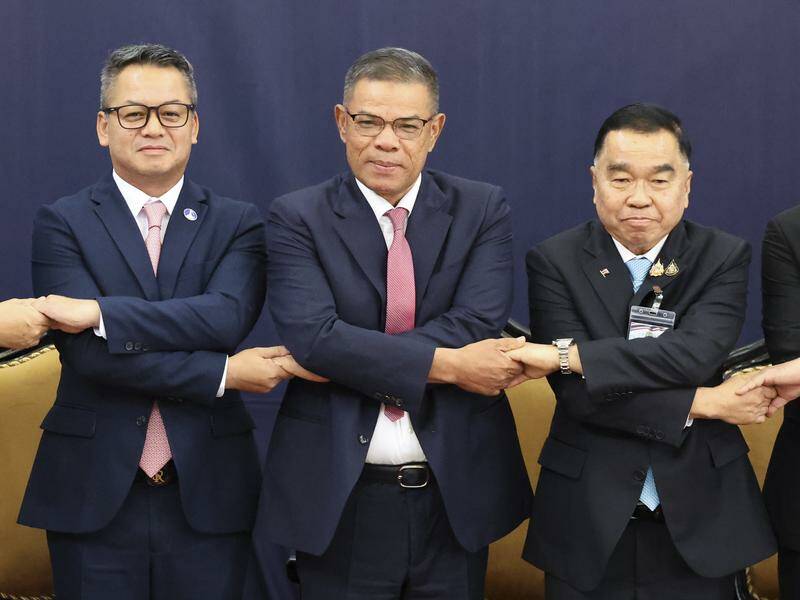
Cambodia and Thailand’s defence leaders convened in Kuala Lumpur, Malaysia, to establish a permanent ceasefire following a five-day border conflict that concluded with an unconditional ceasefire in late July 2023. This meeting marks a significant step towards resolving ongoing tensions between the two Southeast Asian nations, which experienced their most intense fighting in over a decade last month.
The border clashes resulted in at least 43 fatalities and displaced more than 300,000 individuals on both sides. The conflict included artillery exchanges and aerial bombardments, raising alarms internationally and provoking diplomatic responses from regional powers. Notably, both China and Malaysia, the latter serving as chair of the Association of Southeast Asian Nations (ASEAN), have urged restraint and dialogue.
Negotiations Under Pressure
Negotiations between the two countries intensified after a statement from former US President Donald Trump, who indicated that tariff discussions would not proceed without an assurance of peace. This external pressure contributed to the urgency of the current talks.
Cambodian Defence Minister Tea Seiha and Thailand’s acting Defence Minister Nattaphon Narkphanit are now working to finalize guidelines that will address border disputes, rebuild trust between military forces, and establish measures to protect civilians. Nattaphon highlighted the importance of these discussions, stating, “Our aim is to minimize tensions and ensure long-lasting peace in the region.”
The groundwork for these negotiations was laid during three days of discussions among senior officials in Kuala Lumpur. The final day will include observers from both China and the United States, emphasizing the international interest in the resolution process.
Historical Context of Disputes
The longstanding disputes between Cambodia and Thailand stem from ambiguities along their 817-kilometre border, originally mapped by France in 1907 during its colonial rule. These territorial disagreements have fueled tensions for decades, complicating diplomatic relations.
As the meeting progresses, both parties remain focused on establishing a framework for peace that not only addresses immediate concerns but also fosters a stable future for both nations and their citizens. The outcomes of these discussions are anticipated to have significant implications for regional stability in Southeast Asia.







